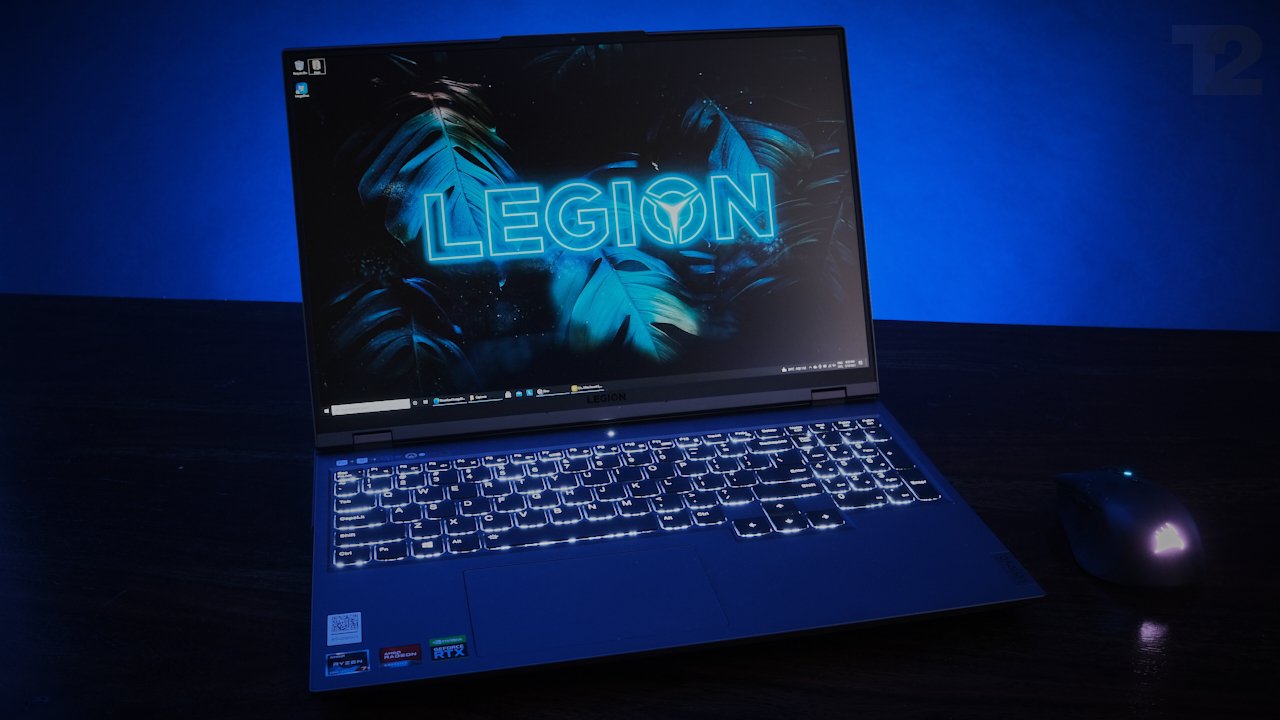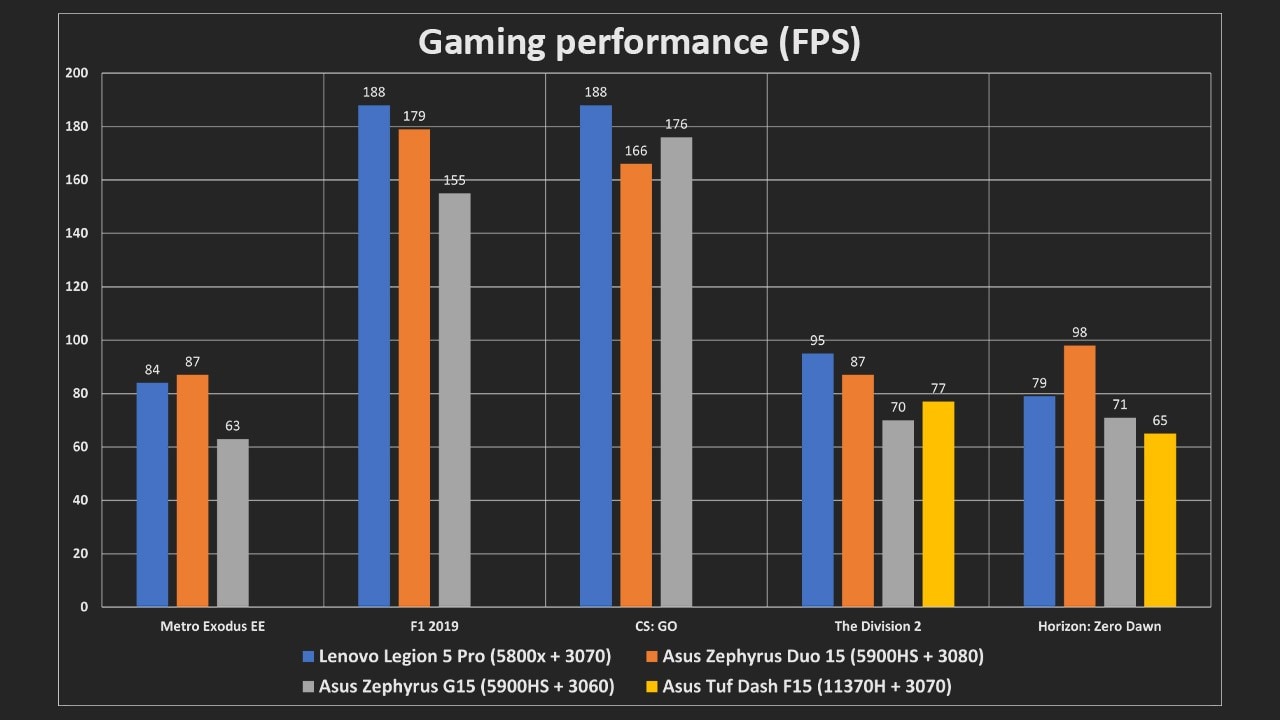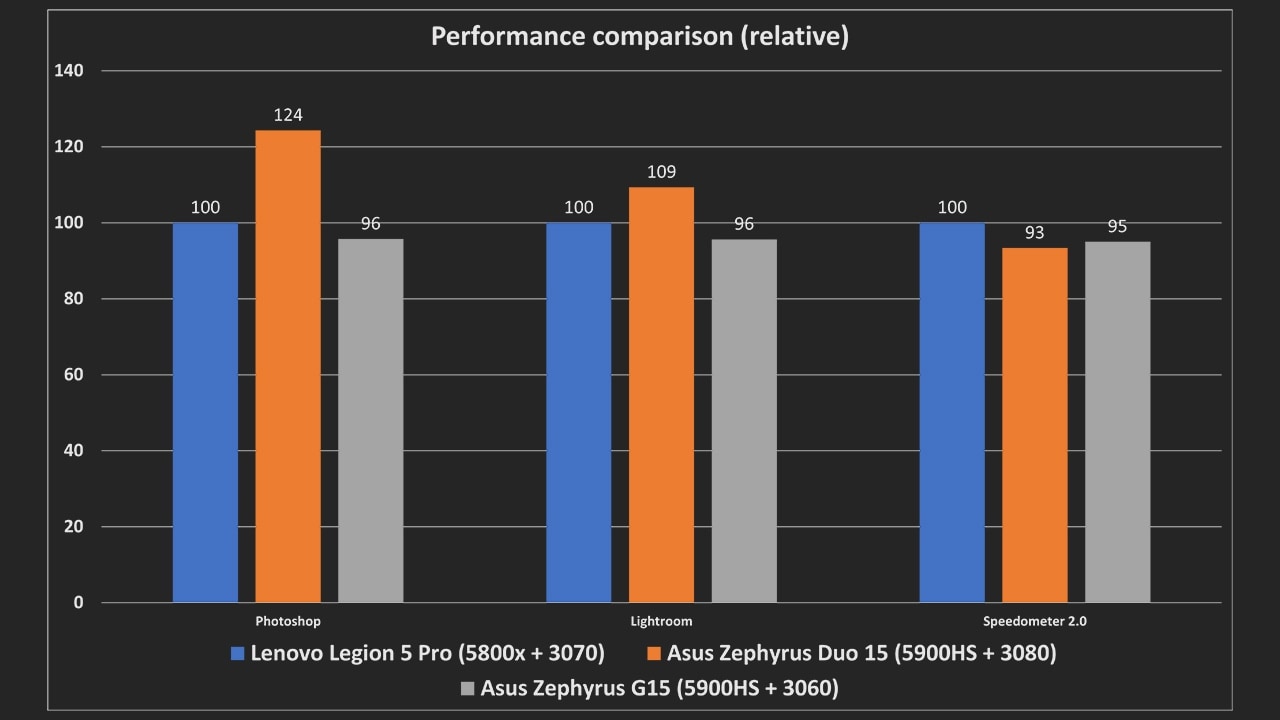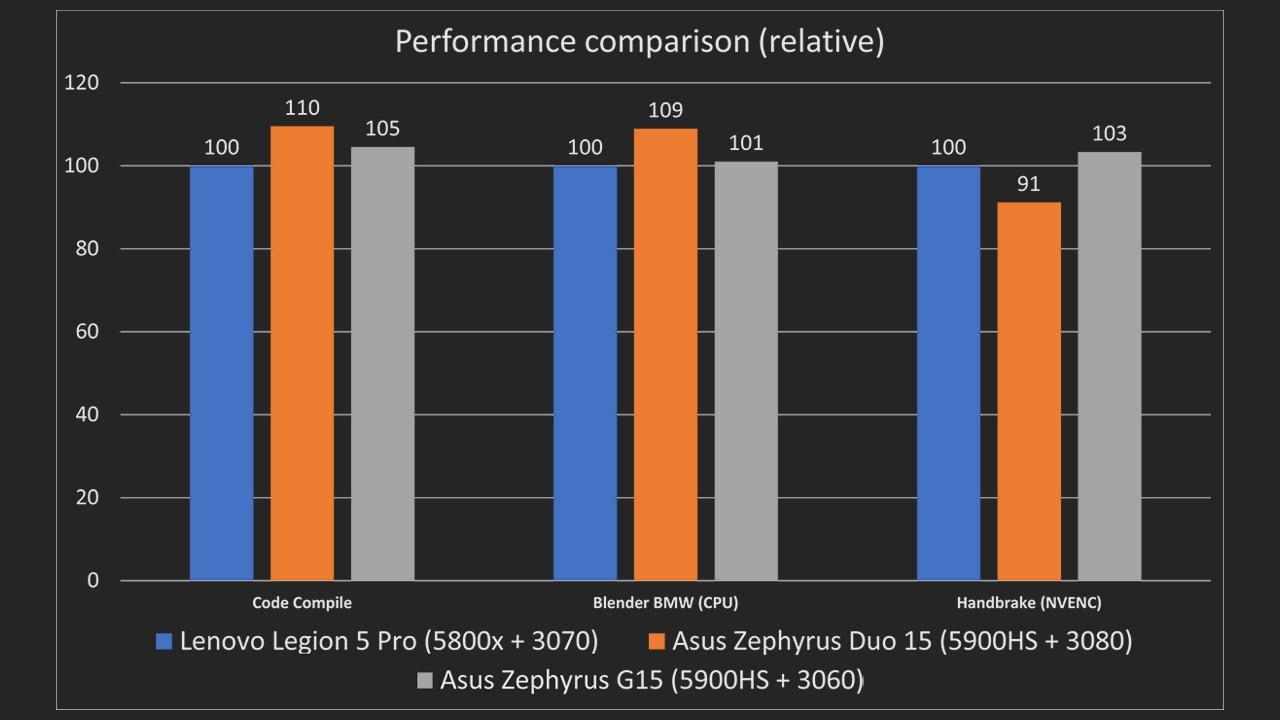Anirudh RegidiAug 27, 2021 15:49:49 IST
Powered by an AMD Ryzen 7 5800x CPU and an Nvidia RTX 3070 GPU, the Lenovo Legion 5 Pro has a lot of grunt. More importantly, it knows how to take full advantage of that grunt. With a 140W TGP and an airy chassis, that GPU is allowed to stretch its legs. Powerful fans mean that the CPU can do the same. The speakers are great, the display is phenomenal and there’s plenty of high-speed storage for all your games.
It might seem like I’m giving away the plot too early, and I might be doing just that, but one of the luxuries of reviewing great, focused products is that they deliver exactly what was promised and there’s really nothing else to say because, well, Lenovo has delivered exactly what it promised. The Legion 5 Pro is one of the best gaming laptops you can buy in this price range. It’s that simple.
Display
Gaming laptops tend to offer fast, Full HD displays. Lenovo has gone with fast (165 Hz), but also upped the resolution to 2K (2560×1600) in a 16:10 aspect ratio. Better yet, at 500 nits, this 16-inch display is nearly twice as bright as that of other gaming laptops, and it’s also perfectly calibrated. This makes a huge difference.

The Lenovo Legion 5 Pro looks good and performs well. As a complete package, it’s hard to beat. Image: Tech2/Anirudh Regidi
Apple’s displays, be it on iPads or MacBooks, look so good because they’re quite bright and colour accurate. Until the Legion 5 Pro arrived at my doorstep, I don’t think I’ve encountered a gaming laptop with a display that’s this bright and accurate. I also like the taller 16:10 aspect ratio that Lenovo has opted for here, because it makes a difference when I’m working. There’s just that little bit more room for docks, controls, and other UI elements. If you’re just gaming or watching movies, this shouldn’t matter.
Measuring with an i1DisplayPro Plus, it appears that the display maxes out at 519 nits and covers 95 percent of the sRGB spectrum. Contrast ratio was an impressive 1206:1 and average △E was a mere 0.2. And this is before calibration. △E is the variation in rendered colour from its expected value. Any value under 2 indicates that the variation is small enough to be nearly indistinguishable to the human eye.
If this were a MacBook, I’d be complaining about the lack of AdobeRGB or DCI-P3 coverage. Because it isn’t, and especially because it’s running Windows 10, which struggles with wider colour gamuts to begin with, I think Lenovo made a smart decision here by not bothering with a wide gamut display. Games and movies will draw you in, and that fast refresh rate coupled with the superb contrast ratio means you won’t miss a shot in those super competitive lobbies.
Performance
Performance is great. The laptop consistently pushed 60+ fps at its native 1600p at max settings — and nearly 200 fps in CS: GO. With DLSS – an AI-based upscaler from Nvidia – enabled, even the demanding Metro Exodus Enhanced Edition ran at a comfortable 81 fps with RTX set to High. Versus the ASUS Tuf Dash 15, which is Rs 20,000 cheaper while also packing an RTX 3070 (albeit with an Intel CPU), the Legion 5 Pro is nearly 50 percent faster when it comes to gaming. It nearly matches the RTX 3080-toting Zephyrus Duo 15 with most games, and even manages to take the lead with some others.

As can be seen from the graphs, the 140 W TGP of the 3070 in the Legion 5 Pro gives it an edge over its rivals, even those packing a 3080.
These performance gains are easy to explain when you look at the TGP (not TDP, which is heat dissipated) of the GPU. Most laptop GPUs are capped at about 80 W TGP, the amount of power they’re allowed to consume. The 3070 in the Tuf F15, for example, is rated at 80+5. The Legion 5 Pro allows its 3070 to get to 140 W, which is near the upper limit of what Nvidia specifies for its RTX 30-series laptop parts. That massive performance headroom allows the GPU to run fast, and the chassis design allows it to stay relatively cool while doing so. While gaming, temperatures rarely crossed 80 C and the GPU didn’t appear to throttle.
Lenovo has built some performance profiles in, and switching between these is as easy as pressing a couple of buttons. The performance mode is indicated by the colour of the power button LED.

The more powerful CPU in the Zephyrus Duo 15 certainly helps in image editing tasks. The brighter, more accurate display on the Legion 5 is more useful here.
Personally, I really like this system. While the likes of ASUS and MSI have software that let you finely tune clock speeds, power delivery, etc., I find these systems too cumbersome, and the result of all that tweaking is rarely rewarding. In any case, the Legion 5’s profiles are quick and easy to switch between and there are no gratuitous animations to distract you.
You can still tweak settings manually if you want to, but the software isn’t thrown in your face the way it is on other gaming laptops.
In max performance mode, the fans do get loud, but they don’t whine like cheap cooling fans. The hot air is pumped out the back, which saves my hands from being roasted when gaming.

While the two ASUS laptops are both packing the same CPU, the Duo 15’s chassis allows for better cooling. It’s also for this reason that the Legion 5 Pro’s 5800H is able to compete with the 5900HS in the G15.
Lastly, the speakers are good. They’re loud enough to drown out fan noise, have enough bass for ambience and music, and enough clarity for adequate stereo separation when playing games. They come nowhere near matching the quality of Apple’s 16-inch MacBook Pro speakers, but they get the job done.
I do have one complaint, and that’s to do with battery life. At just two and a half hours (with the display set to 120 nits) in our PCMark 10 Modern Office test, the Legion 5 Pro offers less than half the battery life of its rivals. Bear in mind that the Modern Office test only simulates a regular office workload, i.e. documents and graphs, web browsing, and video conferencing, etc. The test doesn’t involve gaming or heavy rendering workloads. This was with the laptop in its balanced mode. If you’re just watching videos, you can expect about five hours from this one.
Design and ergonomics
I’ve reviewed several Legion laptops over the years, and while I found them sturdy, I generally found the designs to be quite plain. That’s not the case with the Legion 5 Pro. Firstly, the body’s made of metal and feels amazing, and secondly, there’s a bit of style thrown in. People will know you’re toting a premium laptop but will also not curl their lips at overused RGB lighting and an overly colourful chassis.
Like Lenovo’s premium ThinkPads, the design of the Legion 5 Pro is, I think, understated, and I like that.
There’s plenty of I/O, and most of it is at the rear (RJ45, USB-C, 3x USB-A, HDMI and power), with only a USB-A port on the left, and a USB-C port and audio jack on the right. This leaves more room for air intakes on the sides of the device, and less clutter for your mouse-operating hand to deal with.
RAM and storage are upgradeable.
Verdict: Hard to fault a laptop this well made
If I had Rs 1.8 lakh to spare, I wouldn’t hesitate in picking up the Legion 5 Pro. This laptop is sensibly designed and is, without a doubt, one of the best gaming laptops you can get for under Rs 2 lakh. Battery life could have been better, and I’d have liked to see a bit more RAM for heavier workloads, but with a display this good and upgradeable storage, it feels churlish to complain.
Post a Comment